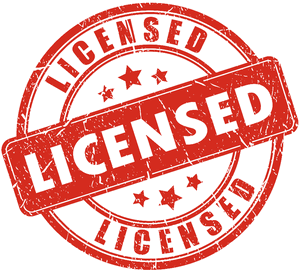 Online casinos, sportsbooks, poker rooms and other gambling platforms can’t be considered as legal and regulated entities unless they possess some form of gambling licence. Many countries will only allow platforms that hold a licence from their respective regulatory body to legally operate within them.
Online casinos, sportsbooks, poker rooms and other gambling platforms can’t be considered as legal and regulated entities unless they possess some form of gambling licence. Many countries will only allow platforms that hold a licence from their respective regulatory body to legally operate within them.
It is for this reason that various regulatory bodies have become effective throughout the world, and some of these have become major players in the industry, too.
But which of these can really be considered as more respectable and trustworthy? Do any of them stand out as being specifically more inviting for an online gambling operator than others? Is it easier to receive a licence from one jurisdiction than from any other?
We’re going to be taking a look at the major gambling licensing jurisdictions around the world and finding out more about their operations, what they provide and if they’ve had any negative press attached to them over the years.
United Kingdom Gambling Commission
 The United Kingdom Gambling Commission (UKGC) was set up under the country’s Gambling Act 2005 in a bid to regulate commercial gambling throughout the UK as part of a partnership with licensing authorities. It covers arcades, sports betting, bingo, casinos, slot machines, lotteries and remote gambling operations in the UK. The one area that is doesn’t cover though is spread betting, this falls under the remit of the FCA.
The United Kingdom Gambling Commission (UKGC) was set up under the country’s Gambling Act 2005 in a bid to regulate commercial gambling throughout the UK as part of a partnership with licensing authorities. It covers arcades, sports betting, bingo, casinos, slot machines, lotteries and remote gambling operations in the UK. The one area that is doesn’t cover though is spread betting, this falls under the remit of the FCA.
The Commission aims to keep crime out of the gambling world and protect vulnerable people in the country. Licenses are also granted by the Gambling Commission to operators, and it also advises the UK Government on any issues relating to the gambling industry. In 2007, the Commission replaced the Gaming Board for Great Britain and it was in 2013 that it took over the responsibility for the National Lottery. In fact, it was only recently that the Commission had to impose a £3 million fine on Camelot – the operator of the National Lottery – for licence breaches between 2009 and 2019.
As it happens, the UK Gambling Commission is one of the licensing bodies that many others have looked up to in the past. The UK has quite the liberal gambling industry, so many of the features of the Commission have been adopted by other regulatory bodies elsewhere. It has since released new business plans so as to try and improve upon the industry standards within the country, following investigations that found various operators breaching their licence conditions.
Notable Features of the Gambling Commission
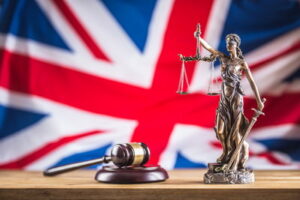 A gambling platform can only be considered legal in the UK if a licence is held by its operator from the Commission. This doesn’t solely relate to UK-based operators, either. Foreign-based brands can provide their betting services to UK residents without issue, as long as they are in possession of said licence. The Commission can also levy fines and revoke licences, whilst also being tasked with investigating and prosecuting illegal gambling occurrences.
A gambling platform can only be considered legal in the UK if a licence is held by its operator from the Commission. This doesn’t solely relate to UK-based operators, either. Foreign-based brands can provide their betting services to UK residents without issue, as long as they are in possession of said licence. The Commission can also levy fines and revoke licences, whilst also being tasked with investigating and prosecuting illegal gambling occurrences.
Various top-profile brands are in possession of a license from the UK Gambling Commission, including William Hill, Bet365, 888, Ladbrokes, Betfred and Betfair, among many others. The Commission has not imposed a limit as to how many operators it will provide licences to as of the moment. Several of these brands have also had fines imposed on them by the Commission, including William Hill (£6.2 million) and Betfair (£2.2 million).
Even though the UKGC set a sort of precedent for other regulatory bodies to follow in line with, various criticisms have been laid out against it over the years. It came under fire for not preventing the spread of high street fixed odds betting terminals (FOBTs), which have been linked to gambling addiction. However, in early 2020, it approved three charities to receive compulsory funding from gambling operators.
In recent times many critics have called for the UKGC to be replaced with new body or at least overhauled. There have been other bodies created, such as the Betting and Gaming Council to help in tackling problem gambling alongside the UKGC and it seems likely we will have a new gambling act in the coming years more suited to the digital betting age that could give the UKGC wider ranging powers.
Alderney Gambling Control Commission
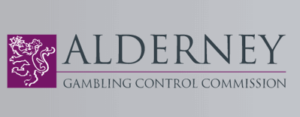 The Alderney Gambling Control Commission (AGCC) acts as a sort of alternative to the aforementioned UKGC, and various operators have chosen to secure themselves a licence from this body either alongside one from the UK or instead of it. Establishing itself in May of 2000, the AGCC is actually thought by many to be quite a step up from the UK’s variation, and it is for this reason that it works alongside many big-name brands.
The Alderney Gambling Control Commission (AGCC) acts as a sort of alternative to the aforementioned UKGC, and various operators have chosen to secure themselves a licence from this body either alongside one from the UK or instead of it. Establishing itself in May of 2000, the AGCC is actually thought by many to be quite a step up from the UK’s variation, and it is for this reason that it works alongside many big-name brands.
The difference is that the AGCC is an independent and non-political regulatory body, regulating online gambling on behalf of the States of Alderney. The mission of this jurisdiction is to maintain the integrity and ensure the fairness of online gambling businesses. It expects only the highest industry standards to be adhered to by its licensees, and it aims to protect player interests against any sort of criminal influence.
Because of the fact that it is an independent regulatory body, it’s unlikely that you’ll find many of the same sort of issues that the UK Gambling Commission has had to sort out over the years.
Some of the notable operations that are licensed through Alderney include Ladbrokes, Virtue Fusion, Grosvenor Casinos and Wirwetten.
Features of the AGCC
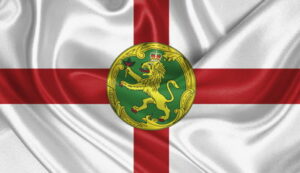 As it happens, obtaining a licence from the AGCC is known to be a lengthy process, which is why many operators go for an easier alternative. However, the difference is that there will be much more effective protection in place with the Alderney jurisdiction. It enacts so many safeguards in a bid to ensure that companies behave responsibly and fairly that you can always guarantee an online casino, sportsbook, bingo hall etc. will be secure if it possesses a licence from the AGCC.
As it happens, obtaining a licence from the AGCC is known to be a lengthy process, which is why many operators go for an easier alternative. However, the difference is that there will be much more effective protection in place with the Alderney jurisdiction. It enacts so many safeguards in a bid to ensure that companies behave responsibly and fairly that you can always guarantee an online casino, sportsbook, bingo hall etc. will be secure if it possesses a licence from the AGCC.
The great thing about the AGCC is that, like the UKGC, it has absolutely no qualms about fining, revoking licences and making examples out of those operators that believe they can skirt around the rules. This makes it one of the more vital regulatory bodies to the industry, as it aims to keep things running smoothly and fairly for all gamblers.
While some countries will allow sites to operate in them with an AGCC license, in the UK a UKGC license must also be held to operare.
Malta Gaming Authority
 When you locate a legitimate online casino, there’s a big chance that it holds a gambling licence from the Malta Gaming Authority (MGA). You wouldn’t think there would be so much interest in an organisation that bases itself off of such a tiny island, but the Malta Gaming Authority disproves that thought.
When you locate a legitimate online casino, there’s a big chance that it holds a gambling licence from the Malta Gaming Authority (MGA). You wouldn’t think there would be so much interest in an organisation that bases itself off of such a tiny island, but the Malta Gaming Authority disproves that thought.
It was in late 2014 that the Malta Lottery and Gaming Authority rebranded itself to become known as the Malta Gaming Authority. While acting as the regulator for most forms of gambling within its own territory, it also regulates online gambling services, including both B2C and B2B services. As it happens, the MGA was one of the very first regulators to offer legislation that regulates the activity of online operators, in a bid to ensure that a secure environment is being accessed by gamers.
The gambling industry has grown considerably since the MGA first became active in 2001. Today, it generates over 12% of Malta’s GDP.
Notable Sites Licensed by the MGA
 So many online platforms and companies possess a licence from the MGA that it would be ludicrous to try and list them all here. However, some of the more notable brands include Authentic Gaming, Bally, Betsson, Genesis Global, Interwetten International, Lucky Dino and 888.
So many online platforms and companies possess a licence from the MGA that it would be ludicrous to try and list them all here. However, some of the more notable brands include Authentic Gaming, Bally, Betsson, Genesis Global, Interwetten International, Lucky Dino and 888.
Something that also stands out about the MGA is that it is one of the more responsive iGaming regulators – at least as far as player complaints are concerned. This is due to the fact that it has incorporated policies that require its licensees to work with an approved Alternative Dispute Resolution (ADR) service. However, while the UKGC also has such in place, the MGA’s version allows its licensed operators to work with multiple ADRs. This means that players have a choice over which body will manage their complaint.
A couple of issues surrounding the MGA licensing structure though, include the limited self-exclusion process and the overall responsible gambling policies in place. There’s way too much leeway for players who have self-excluded to easily revoke that. This ties in to the responsible gambling point, with more emphasis really being necessary on this for MGA licensees.
Many European countries that don’t have their own licensing system will allow sites licensed with the MGA to operate.
Curaçao eGaming
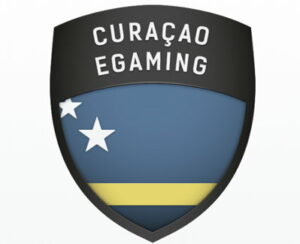 The Curaçao eGaming regulatory body has been around since 1996, and it has been offering eGaming licences and IP compliance services ever since to all its qualified applicants. This does make it one of the oldest and most politically stable providers of regulated online gaming services. Furthermore, many operators have taken to seeking out a licence from this jurisdiction due to the fact that it has exceptionally low tax rates as well.
The Curaçao eGaming regulatory body has been around since 1996, and it has been offering eGaming licences and IP compliance services ever since to all its qualified applicants. This does make it one of the oldest and most politically stable providers of regulated online gaming services. Furthermore, many operators have taken to seeking out a licence from this jurisdiction due to the fact that it has exceptionally low tax rates as well.
The main factor of operators looking to obtain such a licence is that their operations have to be based within Curaçao as well, so, it’s not like the UKGC, where operations can be based anywhere. Of course, where there are lower taxes and fewer restrictions to adhere to, there are also casinos and gambling sites with poor reputations. If you were intending to scam someone but make it look like a legal site, would you choose the licensing body with a 2% tax rate and limited necessary qualifications to obtain a licence or one with a 20% tax rate and harsh licensing restrictions?
Granted, there have been certain signs of improvements being made over the previous few years, the Curaçao eGaming regulatory body has a long way to go before it reaches the much safer levels of the MGA, AGCC or UKGC, for example. This hasn’t stopped operators from seeking out a Curaçao eGaming licence though, even if they are providing a legitimate service. Naturally, this doesn’t put them in the best of company for the ones that have been discovered as not being so credible. With regard to this, not many companies announce that they hold a licence from the jurisdiction, with the last one to do so being in 2017.
Information on a Need-to-Know Basis

You’ll usually find that the more obscure sites possess licences from Curaçao eGaming, rather than those that can be considered big names. There are a few that stand out amongst the masses though, including BetOnline, Gale & Martin, Wild Casino, Tiger Gaming and SportsBetting.ag.
What you will often find with sites that hold a Curaçao gambling licence, is that they will also readily accept and welcome players from countries where gambling isn’t considered to be a legal activity. They often provide a location for gamers from the United States or Australia for example, who aren’t able to find platforms within their countries that they can register at and play games or place sports bets.
The main drawback with Curaçao as a regulator, is that it has such a reputation of not solving player complaints when it comes to the operators holding a licence from there. Because the licensing body is generally far out and away from wherever you’re playing, you can’t really complain to your own country’s regulatory body. So, if you’re not able to solve a problem with the respective gambling site’s customer service team, it leaves you in a little bit of a pickle.
Gibraltar Gambling Commission
 The Gibraltar Gambling Commission (sometimes known as the Gibraltar Regulatory Authority) is fairly similar to the jurisdiction of Alderney. While it is an island that comes under the dependency of the crown, it operates as an independent jurisdiction. As with Curaçao, Gibraltar provides operators with a location that they can benefit from reduced taxes in. It is for this reason, that many companies choose to seek out a licence from the Gibraltar Gambling Commission.
The Gibraltar Gambling Commission (sometimes known as the Gibraltar Regulatory Authority) is fairly similar to the jurisdiction of Alderney. While it is an island that comes under the dependency of the crown, it operates as an independent jurisdiction. As with Curaçao, Gibraltar provides operators with a location that they can benefit from reduced taxes in. It is for this reason, that many companies choose to seek out a licence from the Gibraltar Gambling Commission.
However, where it differs from Curaçao, is in the fact that it’s a lot harder to acquire a licence from this body. You could compare the two organisations and it would seem like Curaçao is simply handing them out like free cake, whereas Gibraltar is a lot more stringent on the operators that get to benefit from holding one of its gambling licences. It is for this reason that the jurisdiction has gained a better notoriety and reputation.
Advantages of Playing at a Gibraltar-Licensed Gambling Site

Without a shadow of a doubt, the greatest benefit of accessing an online site licensed by Gibraltar is that it brings a lot of guarantees with it in regard to safety and security. The risk of joining a scam site are heavily reduced where the Gibraltar Gambling Commission is concerned, as player protection is heavily focused on by the jurisdiction.
One of the biggest factors that the body considers when debating over licence applications is whether player safety can be certain. This relates to both player funds and the safety of players’ personal data. Additionally, it places a prime focus on whether or not a fair and transparent gaming experience can be had by all players signing up for an account. One of the features that an operator must be able to prove when applying for a licence from Gibraltar, is that player funds and company funds are kept separate from one another.
Some of the more popular online gambling platforms to hold licences from Gibraltar include Boylesports, 888 Casino, Mansion, Unibet, Bet365 and BetVictor.